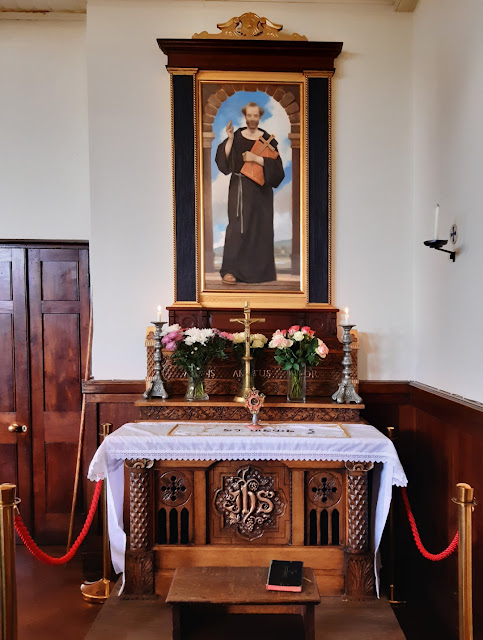Newman's miracle and a purple passage
A short video about the cure of Jack Sullivan which has now been officially recognised as miraculous, paving the way for the beatification of John Henry Newman.
Here is one of my favourite passages from Newman. It is from the Introduction to "An Essay on the Development of Christian Doctrine" where he speaks of those who reject historical Christianity:
They say, in the words of Chillingworth, "There are popes against popes, councils against councils, some fathers against others, the same fathers against themselves, a consent of fathers of one age against a consent of fathers of another age, the Church of one age against the Church of another age:"—Hence they are forced, whether they will or not, to fall back upon the Bible as the sole source of Revelation, and upon their own personal private judgment as the sole expounder of its doctrine. This is a fair argument, if it can be maintained, and it brings me at once to the subject of this Essay. Not that it enters into my purpose to convict of misstatement, as might be done, each separate clause of this sweeping accusation of a smart but superficial writer; but neither on the other hand do I mean to deny everything that he says to the disadvantage of historical Christianity. On the contrary, I shall admit that there are in fact certain apparent variations in its teaching, which have to be explained; thus I shall begin, but then I shall attempt to explain them to the exculpation of that teaching in point of unity, directness, and consistency.Cut and pasted from the excellent Newman Reader.
Meanwhile, before setting about this work, I will address one remark to Chillingworth and his friends:—Let them consider, that if they can criticize history, the facts of history certainly can retort upon them. It might, I grant, be clearer on this great subject than it is. This is no great concession. History is not a creed or a catechism, it gives lessons rather than rules; still no one can mistake its general teaching in this matter, whether he accept it or stumble at it. Bold outlines and broad masses of colour rise out of the records of the past. They may be dim, they may be incomplete; but they are definite. And this one thing at least is certain; whatever history teaches, whatever it omits, whatever it exaggerates or extenuates, whatever it says and unsays, at least the Christianity of history is not Protestantism. If ever there were a safe truth, it is this.
And Protestantism has ever felt it so. I do not mean that every writer on the Protestant side has felt it; for it was the fashion at first, at least as a rhetorical argument against Rome, to appeal to past ages, or to some of them; but Protestantism, as a whole, feels it, and has felt it. This is shown in the determination already referred to of dispensing with historical Christianity altogether, and of forming a Christianity from the Bible alone: men never would have put it aside, unless they had despaired of it. It is shown by the long neglect of ecclesiastical history in England, which prevails even in the English Church. Our popular religion scarcely recognizes the fact of the twelve long ages which lie between the Councils of Nicæa and Trent, except as affording one or two passages to illustrate its wild interpretations of certain prophesies of St. Paul and St. John. It is melancholy to say it, but the chief, perhaps the only English writer who has any claim to be considered an ecclesiastical historian, is the unbeliever Gibbon. To be deep in history is to cease to be a Protestant.


